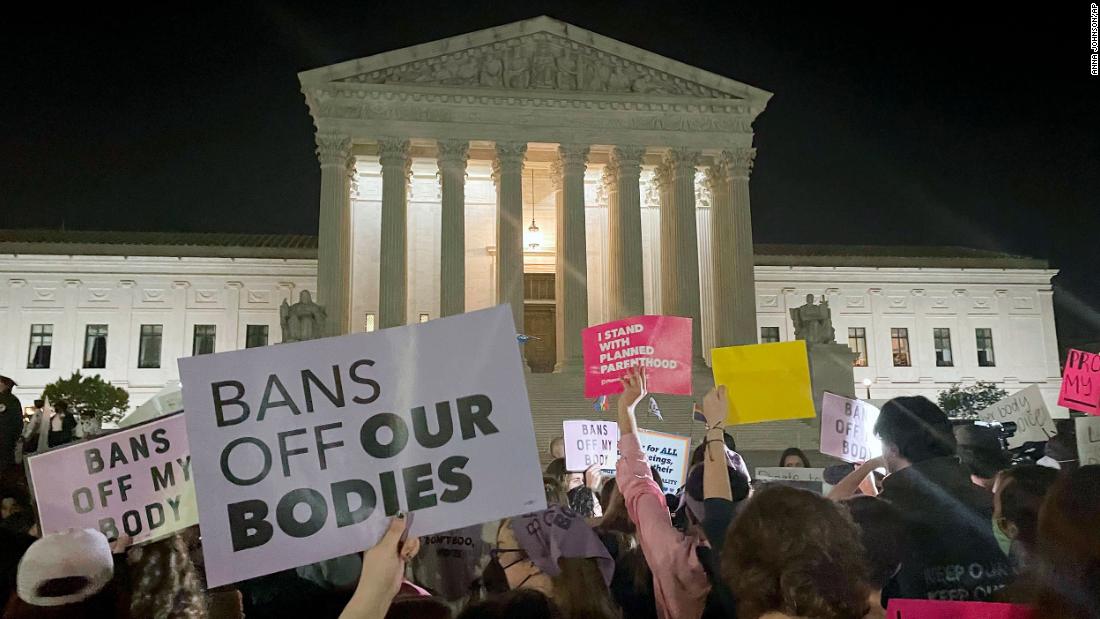
Corporations, once a reliable supporter of Republican politicians and issues, have recently grown out of step with the GOP — particularly since the Trump administration took over the White House in 2017. Issues such as trade policy, LGBT+ rights, health care, voting rights, reproductive issues and democratic values have driven a wedge between companies — with increasingly younger and socially active employees — and Republican lawmakers.
Republicans currently campaigning in primary elections have found traction in portraying large corporations as liberal and elitist. They’ve created campaigns calling for bans on firms they label as “woke.”
The vast majority of Americans support the right to abortion access. Yet the Supreme Court’s potential action against Roe v. Wade could create a situation in which as many as 26 states could ban abortion. That could mean millions of women seeking an abortion would be suddenly unable to afford to travel to a state that allows the procedure.
Companies will therefore face a difficult choice: stand up for their employees and face possible consequences from Republicans — or remain silent and face a potential worker exodus.
“Wait and see” no more
Companies have long approached reproductive rights with a head-in-the-sand dynamic, said Anthony Johndrow, CEO of Reputation Economy Advisors.
Many have decided to wait to see how the Supreme Court rules on the issue before taking a public stance, with most expecting that Roe would likely remain in place. “Hope was the strategy,” Johndrow said. Now they need to weigh in as red-state employees who support the right to choose look to their companies for action.
“Big corporations have spent decades advocating for women’s equality in the workplace and abortion ban laws are a direct threat to that,” he said. “Companies are going to have to deal with their own employees demanding action, and answers for donations made to politicians who support the bans.”
Florida as a bellwether
As corporations look to DeSantis and Disney’s feud, they will decide whether or not to speak out against particular politicians and anti-choice legislation.”
There will probably be a lot of Floridas,” he said. “Companies have negotiated special privileges from tax payments and moved their headquarters accordingly,” but state politics can change that calculus, and those savings may not be worth alienating a workforce, he added.
There’s also a chronic shortage of labor, and skilled workers come at a premium, said Ray Perryman, president and CEO of the Perryman Group, an economic research and analysis firm. “When companies weigh profitability, it’s going to be in their economic interest to speak out on behalf of their employees and deal with political consequences.”
There’s a chorus of “Don’t Ban Equality” signers who are ready to speak out, said Jen Stark, senior director at Tara Health Foundation, the organization behind the letter. But there are also a number of companies waiting in the wings. “We’ve been in touch with so many of them over the past 12 hours and it’s a seachange,” she said. These next few weeks, before the Supreme Court issues its official ruling, is when company advocacy can make the greatest impact, she added.
“Is it too little too late? I have to hope not,” Stark said. “I have to think that the private sector is the last firewall here.”